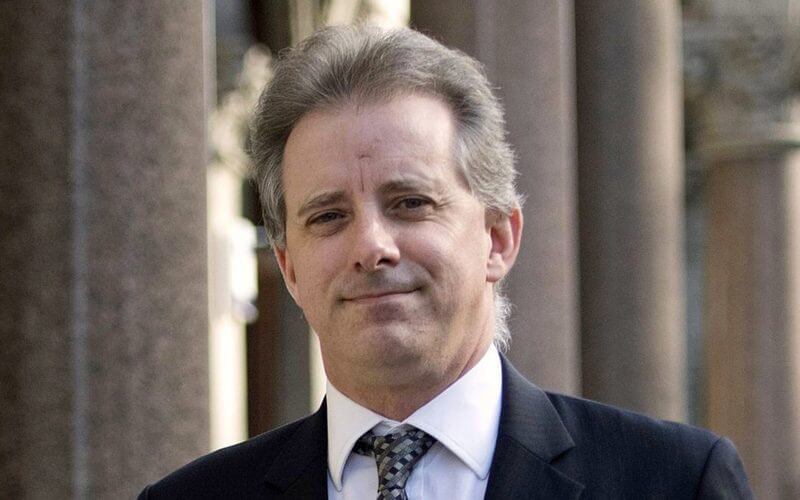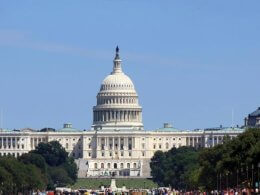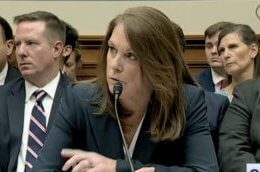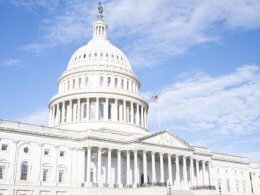In one of the more dramatic exchanges during Igor Danchenko's trial on charges he lied to the FBI during the Russia collusion probe, Special Counsel John Durham confronted a lead agent with evidence he had been warned that the Russian businessman he was using as an informant might be an intelligence asset for Moscow.
Agent Kevin Helson acknowledged that a female member of the FBI's Human Intelligence Validation Unit, with two decades of intelligence experience, had raised concerns that Danchenko may be a member of the Russian military intelligence service known as the GRU, but Helson dismissed the concern.
"This is a real problem," Durham declared, as he and Helson tangled over whether the FBI should have relied on Danchenko as a confidential human source.
Helson dismissed the intelligence analyst's complaint, insisting Danchenko had provided significant help to the FBI in Russian counterintelligence analysis between 2017 and 2020, so much so that the agent had recommended the bureau compensate the Russian analyst with as much as $500,000 in payments.
In the end, Danchenko has never been charged as a Russian spy. Rather, he is charged with five counts of lying to the FBI starting when he acted as the primary source for former British spy Christopher Steele's dossier and then as a paid informant himself for the bureau. One of the charges was dismissed Friday by the trial judge, and the remaining four counts head to a jury Monday after closing arguments.
Nonetheless, Helson's performance at the trial — at times he was treated by Durham as a hostile witness — is a reminder that there is a growing body of evidence that the FBI received numerous warnings the evidence it relied upon to pursue Donald Trump for what turned out to be nonexistent Russian collusion very likely could have been tainted by a Russian disinformation campaign by Vladimir Putin's intelligence services.
And that evidence was often kept from the FISA court that allowed the FBI to spy on the Trump campaign and former adviser Carter Page for a full year.
In addition to the revelation of validation team warning, Helson was also forced to admit he never alerted the FISA judges that the FBI had a prior investigation into Danchenko as a possible spy for Russia back in 2008-10. Instead, the FBI falsely told the court it had no derogatory information on Danchenko.
In truth, the FBI had allegations that Danchenko tried to offer money to Americans he expected to go into the Obama administration if they would provide him classified information, Durham said. The prosecutor said that probe was improperly shut down when the FBI incorrectly concluded Danchenko had left the United States. In fact, he had not.
"There was a case on him ... It was a counterintelligence case ... an espionage case," Helson testified Thursday. The agent claimed he "couldn't see" the earlier case when he first searched the FBI database upon bringing Danchenko aboard as an informant. But he said he learned about the prior spy case within 60 days of getting started.
Durham asked whether Helson ever corrected the false statement there was no derogatory information on Danchenko. "No," the agent answered.
Kevin Brock, a retired FBI intelligence chief who wrote the bureau's confidential human source rules still in existence today, said that while it was great to see the FBI had created validation teams to assess informants, Durham's examination of Helson unmasked troubling behavior.
"I think the startling thing is that you have an agent/analyst in that validation unit pressing one of the case agents on Crossfire Hurricane on this issue of validating the information, the rumors that were present in the Steele dossier documents, and insisting that more work needed to be done," Brock said. "And she kind of got the Heisman, kind of got the stiff arm by the agent. And they really didn't do the due diligence that was necessary for such a high-profile, important case like this."
Brock said the FBI possessed significant evidence calling into question the reliability of Danchenko and the Steele dossier and withheld it from the court. "It's more than derogatory information," he said. "That's something to be worried about. And the court deserve to know that information."
The red flags and warning sirens emerged immediately in the summer of 2016 that the allegations of Trump-Russia collusion might be an intelligence disinformation campaign by Moscow or tainted by politics. In July 2016, just a few days before the FBI opened its Crossfire Hurricane investigation, then-CIA Director John Brennan briefed President Barack Obama that the Russians had intercepted a Hillary Clinton campaign adviser discussing a plan to create a narrative that Trump had a Russia problem.
The FBI knew from its first interaction with Steele in July 2016 that he was being paid and working for the Clinton campaign to create his dossier.
By September 2016 — a month before the FISA warrant was secured — the CIA warned the bureau of the Russians' knowledge about Clinton's operation against Trump.
The CIA told the FBI the Russians had intercepted a call indicating Hillary Clinton personally approved an effort "to stir up a scandal against U.S. Presidential candidate Donald Trump by tying him to Putin and the Russians' hacking of the Democratic National Committee."
Similar conerns were raised inside both the FBI and CIA that Steele's source network had been infiltrated by Russian intelligence, according to declassified footnotes from the Justice Department inspector general investigation into sweeping failures of the FBI in the Russia case.
"Steele's frequent contacts with Russian oligarchs in 2015 had raised concerns in the FBI Transnational Organized Crime Intelligence Unit," one such footnote revealed.
The CIA gave a similarly stark warning, according to another footnote.
"We identified reporting the Crossfire Hurricane team received from [redacted] indicating the potential for Russian disinformation influencing Steele's election reporting," that footnote stated, specifically flagging a "subset of Steele's reporting" as "part of a Russian disinformation campaign to denigrate U.S. foreign relations." Further, according to the footnote, the CIA told FBI investigators that "an individual with reported connections to Trump and Russia" claimed Steele's dossier was compromised by Russian intelligence "infiltrating a source into the network" used by Steele to assemble his allegations against Trump.
The FBI plowed ahead, never looking at the red flags in Steele's so-called "Delta file" assessing his credibility as a source or alerting the court to the validation team's concerns or the prior espionage probe involving Danchenko. Instead, Steele was offered up to $1 million from the FBI if he could prove his dossier, which he never did, according to testimony Durham elicited at the trial last week. Danchenko was recommended to receive a half-million dollars for his work, Agent Helson testified.
The portrait compiled from Durham, the DOJ IG and the declassified CIA evidence is one of the FBI turning a blind eye to the fact that there was no evidence of collusion, just a disinformation operation, former House Intelligence Committee Chairman Devin Nunes said. And the continuation of the probe for nearly three years suggests the FBI proceeded based on politics, not evidence, he added.
"Look, I don't know how you describe this $1 million payment or potential payment to Steele as anything other than what it is," Nunes told Just the News. "It was a bounty program to get Donald Trump. That's what it was plain and simple."
As for the FBI, Nunes said, "It's just so confusing to me as to why these FBI and DOJ characters and some of the Clinton cabal have not been brought up on a conspiracy charge, because clearly they were conspiring to defraud the United States government, and to lie and mislead Congress."
Brock, the former FBI boss, said the sum total of evidence now indicates the FBI failed — either by incompetence or something worse — to detect it had been played by Russian intelligence.
"This has all the classic earmarks of a Russian information operation run through the Hillary Clinton campaign," he said.










